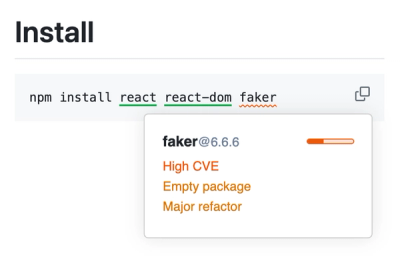@babel/plugin-transform-runtime
Externalise references to helpers and built-ins, automatically polyfilling your code without polluting globals. (This plugin is recommended in a library/tool)
NOTE: Instance methods such as "foobar".includes("foo") will not work since that would require modification of existing built-ins (Use @babel/polyfill for that).
Why?
Babel uses very small helpers for common functions such as _extend. By default this will be added to every file that requires it. This duplication is sometimes unnecessary, especially when your application is spread out over multiple files.
This is where the @babel/plugin-transform-runtime plugin comes in: all of the helpers will reference the module @babel/runtime to avoid duplication across your compiled output. The runtime will be compiled into your build.
Another purpose of this transformer is to create a sandboxed environment for your code. If you use @babel/polyfill and the built-ins it provides such as Promise, Set and Map, those will pollute the global scope. While this might be ok for an app or a command line tool, it becomes a problem if your code is a library which you intend to publish for others to use or if you can't exactly control the environment in which your code will run.
The transformer will alias these built-ins to core-js so you can use them seamlessly without having to require the polyfill.
See the technical details section for more information on how this works and the types of transformations that occur.
Installation
NOTE - Production vs. development dependencies
In most cases, you should install @babel/plugin-transform-runtime as a development dependency (with --save-dev).
npm install --save-dev @babel/plugin-transform-runtime
and @babel/runtime as a production dependency (with --save).
npm install --save @babel/runtime
The transformation plugin is typically used only in development, but the runtime itself will be depended on by your deployed/published code. See the examples below for more details.
Usage
Via .babelrc (Recommended)
Add the following line to your .babelrc file:
Without options:
{
"plugins": ["@babel/plugin-transform-runtime"]
}
With options:
{
"plugins": [
["@babel/plugin-transform-runtime", {
"helpers": false,
"polyfill": false,
"regenerator": true,
"moduleName": "@babel/runtime"
}]
]
}
Via CLI
babel --plugins @babel/plugin-transform-runtime script.js
Via Node API
require("@babel/core").transform("code", {
plugins: ["@babel/plugin-transform-runtime"]
});
Options
helpers
boolean, defaults to true.
Toggles whether or not inlined Babel helpers (classCallCheck, extends, etc.) are replaced with calls to moduleName.
For more information, see Helper aliasing.
polyfill
boolean, defaults to true.
Toggles whether or not new built-ins (Promise, Set, Map, etc.) are transformed to use a non-global polluting polyfill.
For more information, see core-js aliasing.
regenerator
boolean, defaults to true.
Toggles whether or not generator functions are transformed to use a regenerator runtime that does not pollute the global scope.
For more information, see Regenerator aliasing.
moduleName
string, defaults to "@babel/runtime".
Sets the name/path of the module used when importing helpers.
Example:
{
"moduleName": "flavortown/runtime"
}
import extends from 'flavortown/runtime/helpers/extends';
useBuiltIns
boolean, defaults to false.
When enabled, the transform will use helpers that do not use any polyfills
from core-js.
For example, here is the instance helper with useBuiltIns disabled:
exports.__esModule = true;
var _hasInstance = require("../core-js/symbol/has-instance");
var _hasInstance2 = _interopRequireDefault(_hasInstance);
var _symbol = require("../core-js/symbol");
var _symbol2 = _interopRequireDefault(_symbol);
exports.default = function (left, right) {
if (right != null && typeof _symbol2.default !== "undefined" && right[_hasInstance2.default]) {
return right[_hasInstance2.default](left);
} else {
return left instanceof right;
}
};
function _interopRequireDefault(obj) { return obj && obj.__esModule ? obj : { default: obj }; }
And, with it enabled:
exports.__esModule = true;
exports.default = function (left, right) {
if (right != null && typeof Symbol !== "undefined" && right[Symbol.hasInstance]) {
return right[Symbol.hasInstance](left);
} else {
return left instanceof right;
}
};
useESModules
boolean, defaults to false.
When enabled, the transform will use helpers that do not get run through
@babel/plugin-transform-modules-commonjs. This allows for smaller builds in module
systems like webpack, since it doesn't need to preserve commonjs semantics.
For example, here is the classCallCheck helper with useESModules disabled:
exports.__esModule = true;
exports.default = function (instance, Constructor) {
if (!(instance instanceof Constructor)) {
throw new TypeError("Cannot call a class as a function");
}
};
And, with it enabled:
export default function (instance, Constructor) {
if (!(instance instanceof Constructor)) {
throw new TypeError("Cannot call a class as a function");
}
}
Technical details
The runtime transformer plugin does three things:
- Automatically requires
@babel/runtime/regenerator when you use generators/async functions. - Automatically requires
@babel/runtime/core-js and maps ES6 static methods and built-ins. - Removes the inline Babel helpers and uses the module
@babel/runtime/helpers instead.
What does this actually mean though? Basically, you can use built-ins such as Promise, Set, Symbol, etc., as well use all the Babel features that require a polyfill seamlessly, without global pollution, making it extremely suitable for libraries.
Make sure you include @babel/runtime as a dependency.
Regenerator aliasing
Whenever you use a generator function or async function:
function* foo() {
}
the following is generated:
"use strict";
var _marked = [foo].map(regeneratorRuntime.mark);
function foo() {
return regeneratorRuntime.wrap(function foo$(_context) {
while (1) {
switch (_context.prev = _context.next) {
case 0:
case "end":
return _context.stop();
}
}
}, _marked[0], this);
}
This isn't ideal since it relies on the regenerator runtime being included, which
pollutes the global scope.
With the runtime transformer, however, it is compiled to:
"use strict";
var _regenerator = require("@babel/runtime/regenerator");
var _regenerator2 = _interopRequireDefault(_regenerator);
function _interopRequireDefault(obj) { return obj && obj.__esModule ? obj : { default: obj }; }
var _marked = [foo].map(_regenerator2.default.mark);
function foo() {
return _regenerator2.default.wrap(function foo$(_context) {
while (1) {
switch (_context.prev = _context.next) {
case 0:
case "end":
return _context.stop();
}
}
}, _marked[0], this);
}
This means that you can use the regenerator runtime without polluting your current environment.
core-js aliasing
Sometimes you may want to use new built-ins such as Map, Set, Promise etc. Your only way
to use these is usually to include a globally polluting polyfill.
What the runtime transformer does is transform the following:
var sym = Symbol();
var promise = new Promise;
console.log(arr[Symbol.iterator]());
into the following:
"use strict";
var _getIterator2 = require("@babel/runtime/core-js/get-iterator");
var _getIterator3 = _interopRequireDefault(_getIterator2);
var _promise = require("@babel/runtime/core-js/promise");
var _promise2 = _interopRequireDefault(_promise);
var _symbol = require("@babel/runtime/core-js/symbol");
var _symbol2 = _interopRequireDefault(_symbol);
function _interopRequireDefault(obj) { return obj && obj.__esModule ? obj : { default: obj }; }
var sym = (0, _symbol2.default)();
var promise = new _promise2.default();
console.log((0, _getIterator3.default)(arr));
This means is that you can seamlessly use these native built-ins and static methods
without worrying about where they come from.
NOTE: Instance methods such as "foobar".includes("foo") will not work.
Helper aliasing
Usually Babel will place helpers at the top of your file to do common tasks to avoid
duplicating the code around in the current file. Sometimes these helpers can get a
little bulky and add unnecessary duplication across files. The runtime
transformer replaces all the helper calls to a module.
That means that the following code:
class Person {
}
usually turns into:
"use strict";
function _classCallCheck(instance, Constructor) { if (!(instance instanceof Constructor)) { throw new TypeError("Cannot call a class as a function"); } }
var Person = function Person() {
_classCallCheck(this, Person);
};
the runtime transformer however turns this into:
"use strict";
var _classCallCheck2 = require("@babel/runtime/helpers/classCallCheck");
var _classCallCheck3 = _interopRequireDefault(_classCallCheck2);
function _interopRequireDefault(obj) { return obj && obj.__esModule ? obj : { default: obj }; }
var Person = function Person() {
(0, _classCallCheck3.default)(this, Person);
};



